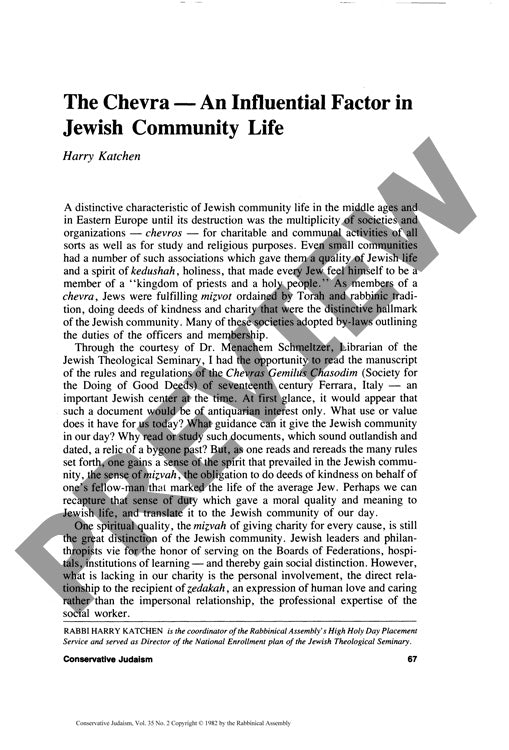The Chevra an Influential Factor in Jewi
Couldn't load pickup availability
Medieval Jewish communities thrived through an intricate network of charitable societies known as chevros - organizations that fundamentally shaped Jewish religious, social, and cultural life. A rare seventeenth-century manuscript from Ferrara, Italy, preserved in the Jewish Theological Seminary archives, reveals how these societies orchestrated comprehensive community services through sophisticated governance structures. Analysis of the Chevras Gemilus Chasodim's (Society for the Doing of Good Deeds) thirty detailed bylaws demonstrates a remarkable system of democratic participation, financial accountability, and social welfare provisions that encompassed care for the sick, burial services, poverty relief, and Torah study. The manuscript shows how chevros fostered inclusive community engagement through mandatory membership requirements, systematic charitable giving, and shared ritual responsibilities - elements that powerfully reinforced Jewish religious identity and communal bonds. While these historical organizational forms may not directly translate to modern contexts, their core principles of personal religious obligation (mitzvah), hands-on charitable work, and democratic fellowship offer valuable models for contemporary Jewish community revival. These insights suggest ways to enhance current havurah movements by reintegrating practical charitable action alongside social and intellectual pursuits.

More Information
-
Physical Description
-
Publication Information
Published 1982
ISBN
-
Publication Credits
Harry Katchen

